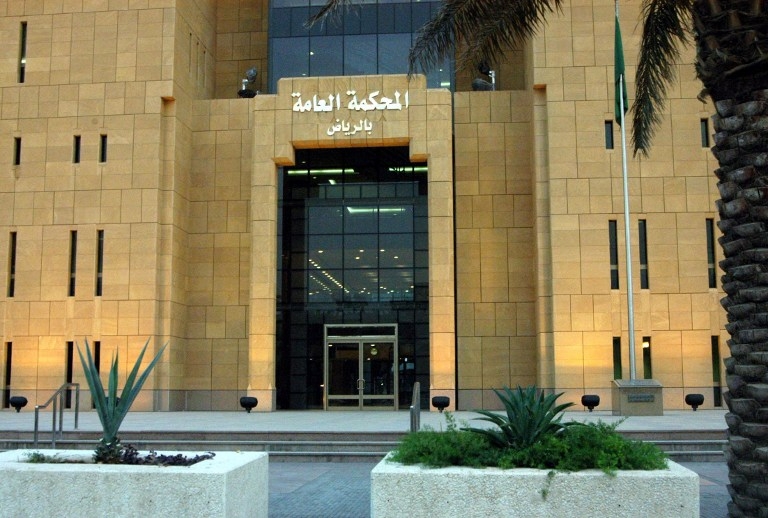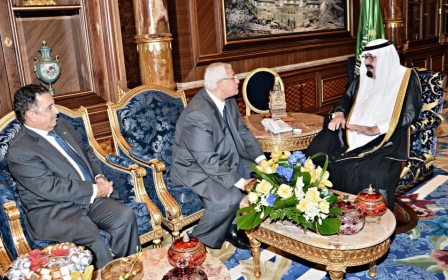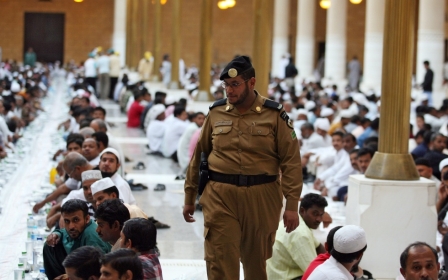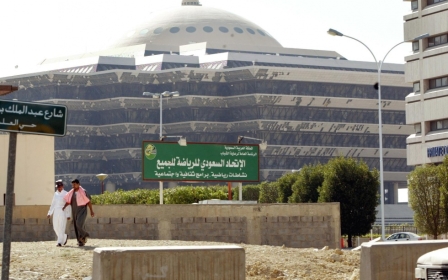Saudi arrests professors for alleged links to Brotherhood

Saudi Arabia has arrested nine university professors for their alleged links to the banned Muslim Brotherhood movement, media reported on Monday.
Investigators found the professors, two Saudis and the rest from neighbouring countries, had been involved with "foreign organisations" based on "voice recordings and emails" linked to them, Okaz daily reported.
Saudi Arabia on 7 March blacklisted the Muslim Brotherhood as a terrorist organisation, along with the kingdom’s branch of Hezbollah and Syria-based jihadist groups the Islamic State of Iraq and the Levant (Isil) and Al Qaida-linked Al Nusra Front.
The investigation should be completed by mid-June, said the daily which is close to the government.
If convicted, the group could be jailed for 10-15 years, after which the foreigners would be deported, it added.
New MEE newsletter: Jerusalem Dispatch
Sign up to get the latest insights and analysis on Israel-Palestine, alongside Turkey Unpacked and other MEE newsletters
Saudi Arabia and its neighbour the United Arab Emirates have cracked down on Islamists accused of links to the Brotherhood and other Islamist groups.
Saudi officials said they were determined to confront extremism and not to allow mosques to be used by partisan groups. According to the ban, those who join or support the groups could face up to 20 years in prison.
Riyadh had hailed the Egyptian military's ouster of Mohamed Morsi, the Islamist president who hails from the Brotherhood. It has also pledged billions of dollars to the army-installed government in Cairo.
The kingdom, along with other absolute monarchies of the Gulf, fears the Brotherhood brand of grass-roots activism and political Islam could undermine its own authority.
But in the past Saudi Arabia gave refuge to many Brotherhood members who suffered repression in the 1960s under the regime of Egypt's first modern military ruler, Gamal Abdel Nasser.
Traditionally, members of the group were active in academic institutions in the kingdom.
On Sunday, Saudi Education Minister Khaled al-Faisal was quoted by media as saying that this was the reason behind the "spread of extremist ideology" in the kingdom.
"We offered them our children and they took them hostage... The society left the stage for them, including schools," he said.
Middle East Eye delivers independent and unrivalled coverage and analysis of the Middle East, North Africa and beyond. To learn more about republishing this content and the associated fees, please fill out this form. More about MEE can be found here.




